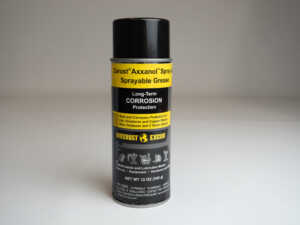Will My Tools Rust if I Store Them in My Garage?

Will My Tools Rust if I Store Them in My Garage?
Rust is the bane of any tool owner’s existence, damaging the look and feel of the metal and ultimately inhibiting the tool’s effectiveness. Tool rust is a chemical process that can occur anytime the metal components interact with air and moisture. Garage storage is ideal for many tool owners because that’s where people often keep a work bench or space. But while garages, sheds or basements may provide basic shelter from the elements, they are not going to prevent rust entirely.
Hand tools may be especially susceptible to rust. This is partly because they contain so many metal components, but also because those components come directly into contact with skin oils and sweat. It is essential to be proactive about stopping rust before it can cause any damage to tools.
Ideal tool storage involves clean, dry tools, low humidity, cool, even temperatures, proper air circulation and the use of vapor corrosion inhibitors, such as drawer liners, plastabs, poly bags and vapor capsules.
Why Tool Rust is So Dangerous
Rust is the most common type of damage for both hand tools and power tools, no matter where they are stored. Important metal components of tools may be ineffective or malfunction if they are rusted. Losing tools to rust can be expensive, and also potentially dangerous if a rusty tool breaks while it’s being used.
Tool rust can be dangerous because:
- Rust corrodes metal. Metal that is rusted is not going to be able to fulfill its intended purpose. For example, corroded pipes are going to result in leaks. Corroded metal lawn furniture can be uncomfortable and unsightly. Corroded tools may not work the way you’re expecting them to.
- Rust can make tools sticky. Moving parts that are necessary to the tool’s function may end up stuck because of rust. Nuts and bolts might end up cementing to each other when rust is involved. Parts that are supposed to slide against each other will grind or become stuck.
- Rust adversely impacts magnetic properties. Rust attacks iron and its alloys, which are known to have unique magnetic properties that make them useful for numerous applications. Rust can cause the magnetic properties of iron and iron alloys to corrode. This is specifically problematic for the magnets on things like motor vehicles and electronics, but it could cause potential problems for tools as well.
- Rust impedes electrical conductivity. Electricity can flow through a number of elements, but metal is the ideal conductor. If a tool or device is rusted, that connectivity can be disrupted.
- Rust can contain tetanus bacteria. Tetanus bacteria can be extremely dangerous for humans, and it can build up easily on rusty surfaces, particularly those that are irregular. When a rusty metal item pierces the skin, it can result in the bacteria entering your bloodstream, which can cause extreme, debilitating contractions of the neck and jaw muscles.
It is essential to be proactive about stopping tool rust before it can cause any damage to tools.
Garage Storage Won’t Entirely Prevent Tools From Rusting
Rust is a type of chemical corrosion, and the exact rate of it is going to depend on:
- How much metal is in them (and what type).
- The climate of the storage space (most critically, moisture concentration, exposure to open air and temperature fluctuation).
- Whether there are any rust-mitigating efforts.
Garage storage can keep your tools from direct exposure, but it’s imperative to take additional measures to keep your tools in top shape. Vapor corrosion inhibiting (VCI) products can be used to formulate a smart garage storage plan for your tools. VCI shields metals by coating them with a molecule-thin layer of corrosion-inhibiting vapor that protects against moisture and air to prevent the chemical process of corrosion.
Some of the rust prevention solutions we offer for tools are:
- Toolbox drawer liners. These PVC rubber sheets can be cut to size to fit your tool box, storage box, truck box or drawers. They’re easy to clean, and protect your tools from slipping and denting in addition to rust and corrosion. They last up to five years, and can be reused, recut and repurposed.
- VCI poly bags. These are plastic bags with VCI technology that can be used to store tools when you keep them in your garage or shed. There are a dozen different sizes and options for zip closure for extra seal protection.
- Rust prevention vapor capsules. These come in several different sizes and strengths and can be easily stuck to the inside of a closet, shed, or box where you keep the tools in your garage, keeping the contents safe from rust and other forms of corrosion.
So while garage storage on its own won’t prevent tool rust, you can prevent tool rust in your garage with VCI technology.
*************@************ts.com“>Contact Zerust for information on how to prevent tool rust by emailing us or calling (330) 405-1965.
Additional Resources:
Gardening: Deal with rusty tools now, before you need them, March 5, 2020, By Nancy Szerlag, The Detroit News
More Blog Entries:
Top 3 Tool Rust Prevention Strategies from Zerust, Feb. 21, 2021, Zerust Garage Tool Rust Prevention Blog
- Categorized: Rust Prevention Tips
- Tagged: garage tool rust, garage tool storage, hand tool rust, prevent tool rust, tool rust, tool storage




